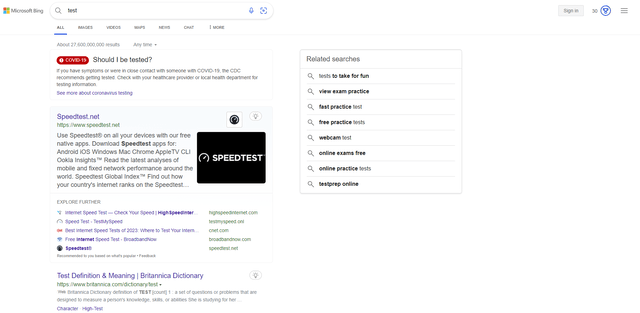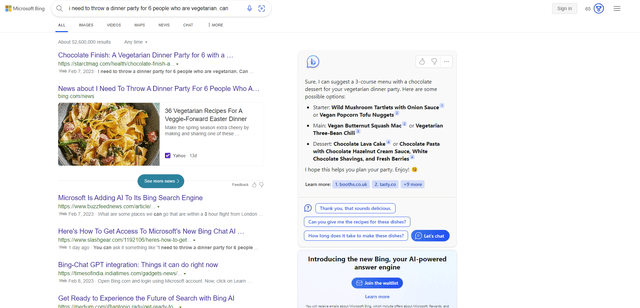Summary:
- Many investors now believe that Google’s business is under existential threat from the likes of ChatGPT and generative AI technology.
- Yet, Bing.com gets 1.25% of the visits that Google.com does on a global level: they’re simply not in the same league.
- Additionally, the ‘simple search’ user experience as it now stands is good as it is, for reasons outlined below.
- Furthermore, Google is an elite AI player, albeit somewhat behind in the initial rush to commercialization.
- In sum, Google and its core search offering will be just fine, in my view.
zodebala/iStock Unreleased via Getty Images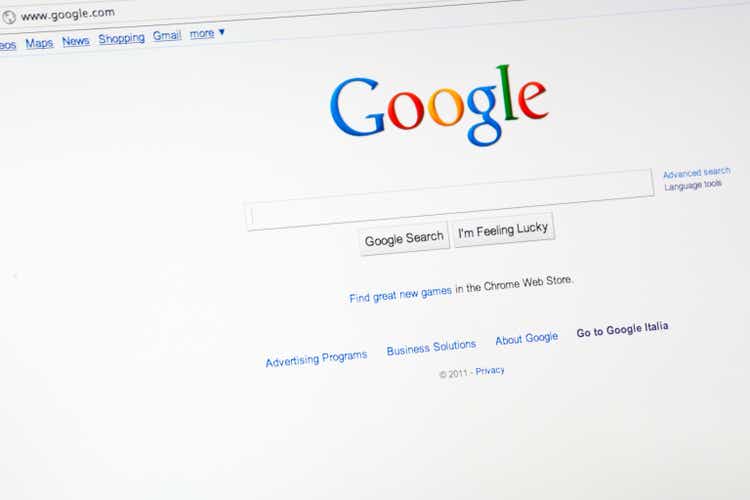
Overview
ChatGPT has been the talk of the town since it first released in Q4 2022. Hailed as a groundbreaking technology and the ‘killer app’ for generative artificial intelligence, the technology has polarized investors, the media, and corporate boardrooms around the world.
More specifically, ChatGPT is believed by many to be a threat to the very foundation of Google’s business: search. Brandished by Microsoft as offering a superior search experience, Google has been forced to release a (presently inferior) competitor called Bard. After a disappointing first showing in which the technology failed to answer a basic question correctly, Google stock lost close to 10% of its value on the spot.
Yet, we must ask ourselves if this reaction is warranted and if ChatGPT genuinely presents a threat to Google’s market dominance in search. Personally, I don’t think so. In this article, I’ll walk through my logic for why this is the case.
Google Versus Bing
The first thing that we need to consider here is just how far ahead of the competition Google is in terms of search. Looking at web analytics provider Similarweb, we can confirm that Google is the most visited website in the world, with 88.3B visits last month alone. Bing.com doesn’t even come close, being the 31st most visited website globally with only 1.1B visits last month – a mere 1.25% of Google’s. Microsoft would have to cover a lot of ground just to even be in the same league as Google.
similarweb.com google.com 2.9.23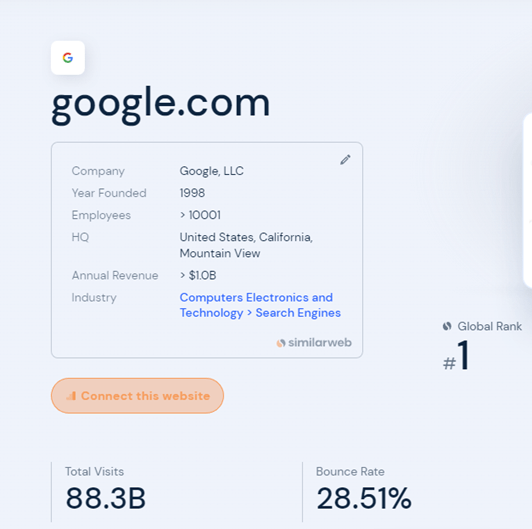
similarweb.com bing.com 2.9.23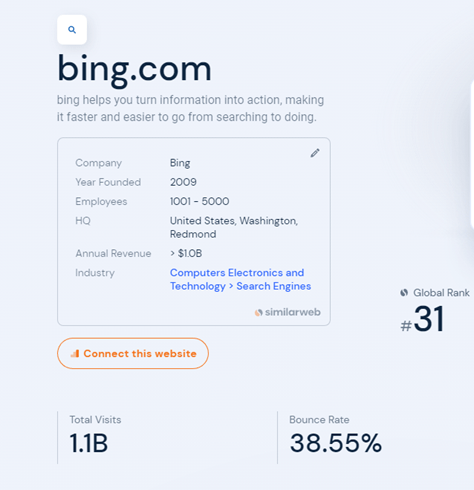
User Experience
This element of my thesis is more qualitative in nature. Simply put, I think Google has always done well because of its exceptional user experience. Its simple, clean, interface has won hearts and minds ever since it launched. The success of this simple interface is indeed proven by the fact that Bing.com is basically a carbon copy in terms of user interface – see below.
The new ChatGPT-enabled element that Bing is set to release will have an additional box on the side that answers your questions in a more specific fashion. Yet, the interface will remain the same – with search results still being there, in order, just as they always have been. Since the results in the box on the right are still derived from the search, all I’m really getting here is the capacity to save myself one or two mouse clicks – not exactly a game-changer, as I see it.
The other element to consider here is that getting one answer (albeit with links to the websites) isn’t really what I want from search. Simply put, I wouldn’t have the conviction that I’m really getting the best answer to my inquiry. As a search user, I am used to seeing multiple answers (websites) to whatever question I may have. From the perspective of user experience, it is actually a significant leap to allow the computer to decide for me. Even if it is indeed giving me the best result, I am most likely going to look through a couple of these to make sure or just to feel that I made up my mind correctly – which basically has me doing the exact same thing as regular search in the first place.
Thinking about this further, I and every other user of search has come to expect a set of answers. Foraging through this information gives me the conviction that I found the best result. To repeat, it is a completely different ball game to just let the machine decide for me. I don’t foresee myself or other users so readily giving up this capacity for choice – it doesn’t take so much time or energy to look through 2-3 results and arrive at a conclusion. This feeling of choice in the run-up to settling on the correct website or answer is part of the secret sauce of search user experience.
Just as I believe that the average person wouldn’t be comfortable sitting in a driverless car (Silicon Valley bros are the exception here), I don’t believe that the average person will be comfortable letting the computer guide their web activity in entirety. If that is the case, then ‘simple search’ as it now exists is still a better product. I want a set of answers, and I want the feeling that I am making a decision; if I just get one result, the urge to check and confirm will be present – bringing me right back to good ole’ search.
In sum, people are used to a certain level of automation in regard to everything that they do – which very much includes search. Since the energy involved in looking through a couple of search results is minimal, I don’t believe that I would be getting too much from having the computer tell me the best answer off the bat. In fact, it already does so by putting the best search result first on the list. I think this element of the search user experience is underappreciated at present.
Google’s Artificial Intelligence Capability
Some people in the investment community think Google is behind in AI. Here’s the deal: it’s not. While it may not have readily commercialized something like Microsoft’s copilot, an impressive and useful product, Google’s artificial intelligence division is revered by technologists the world over. Keep in mind, this is the company that owns Deepmind – one of the most advanced and proven artificial intelligence units in the world. This is the company that created an artificial intelligence system that can beat human players at Go, a game that is significantly more complex than chess from a computational complexity perspective.
There are a slew of other AI achievements that Google has promulgated, which are outside the scope of this article. People in the technology community know that Google doesn’t play around when it comes to artificial intelligence. The disparity here vis-à-vis Microsoft, I believe, is due to Microsoft’s more aggressive commercialization of certain AI technologies. Yet, AI is a field that takes immense R&D and basic research; looking at Google’s record of publications as well as the marquee Deepmind, I think they have what they need to begin commercializing AI across the board.
Conclusion
Taking all of this together, I wouldn’t be too worried about Google or their core search business. In fact, I think the greater risk is that Google iterates its core search product too much in response to the swirling hype around AI. This would be killing the golden goose. Barring that outcome, however, things will proceed as they are – and Google will still be king of search.
Disclosure: I/we have no stock, option or similar derivative position in any of the companies mentioned, and no plans to initiate any such positions within the next 72 hours. I wrote this article myself, and it expresses my own opinions. I am not receiving compensation for it (other than from Seeking Alpha). I have no business relationship with any company whose stock is mentioned in this article.

